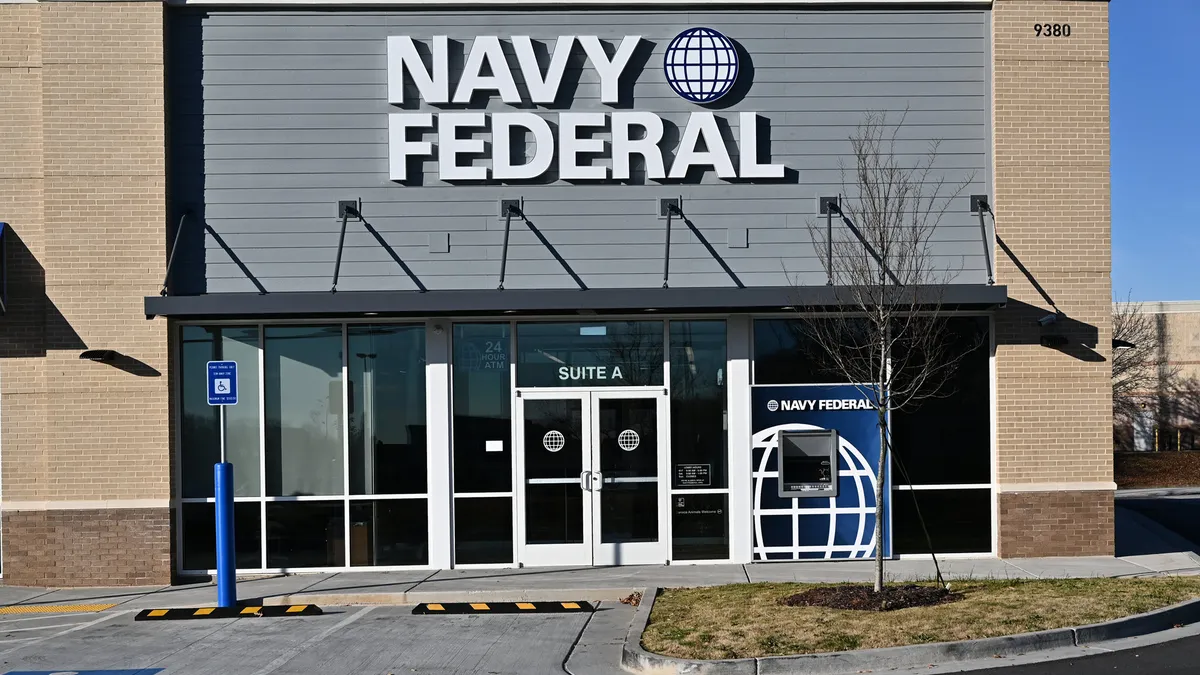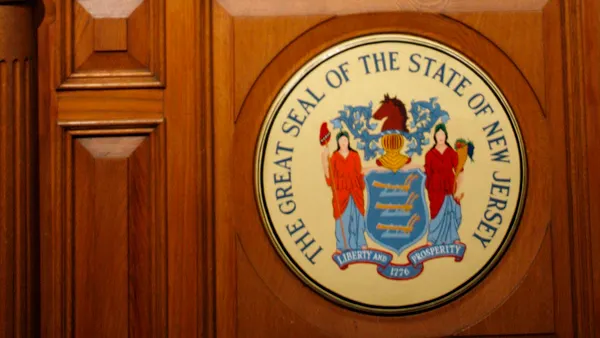Dive Brief:
- Vienna, Virginia-based Navy Federal Credit Union must pay more than $95 million in refunds and civil penalties related to surprise overdraft fees, the Consumer Financial Protection Bureau said Thursday.
- From 2017 to 2022, the $171 billion-asset credit union charged customers overdraft fees on certain ATM withdrawals and debit card purchases, even when their accounts showed sufficient funds at the time of the transactions, the CFPB said.
- “Navy Federal illegally harvested tens of millions of dollars in junk fees, including from active duty servicemembers and veterans,” said CFPB Director Rohit Chopra, who added the agency’s efforts to tackle “junk fees” have saved American families billions.
Dive Insight:
The latest penalty against Navy Federal is the largest amount ever obtained from a credit union for illegal activity, the CFPB said. It follows a civil penalty of $1.5 million the CFPB levied against Jacksonville, Florida-based VyStar Credit Union last week.
Navy Federal charged consumers $20 for most overdraft transactions through its Optional Overdraft Protection Service and collected roughly $1 billion in overdraft fees from 2017 to2021, the bureau said.
Navy Federal charged “illegal, surprise overdraft fees” when purchases later posted and put the account in a negative balance, sometimes days later — generating an average of $44 million per year in “surprise” overdraft fees, the CFPB said.
Navy Federal also failed to disclose that money received through payment services like Zelle, PayPal, and Cash App after certain cutoff times would not actually post until the next business day, the bureau said. Customers who tried to use this pending money were then charged overdraft fees, and this practice generated at least $4 million in fees collected by the credit union.
The CFPB ordered Navy Federal to refund over $80 million in fees improperly charged to affected customers. The largest credit union in the U.S. is also barred from charging illegal overdraft fees.
The $15 million civil penalty will go toward the CFPB’s victims relief fund.
“Navy Federal fully cooperated with the CFPB’s investigation and we will continue to comply with all applicable laws and regulations, just as we always have and as we believe we did here,” Navy Federal said in a Thursday statement. “Nevertheless, this settlement enables us to focus on serving our members and their families.”
The credit union said it works to help members avoid overdrafts in the first place through specific programs, and has complied with evolving regulatory expectations, including automatically refunding certain overdraft fees since January 2023.
The credit union will also eliminate non-sufficient fund fees for personal checking accounts starting in Q1 2025, Navy Federal said.
Many banks have eliminated overdraft fees, like Ally, Citi and Capital One, or reduced the cap on overdraft fees, like Bank of America, BMO Harris, KeyBank and Regions Bank, according to Bankrate.
In January, the CFPB proposed a rule to reduce overdraft fees charged by banks with more than $10 billion in assets, to between $3 and $14. However, the CFPB didn’t include credit unions in the rule.
National Credit Union Administration Chairman Todd M. Harper condemned Navy Federal for its unfair “authorize positive, settle negative practices,” noting such practices and an overreliance on overdraft and non-sufficient fees are seen as counter to the credit union system's mission of meeting the financial needs of members.
“Navy Federal’s authorize positive, settle negative practices and the subsequent charging of overdraft fees were not only unfair, but they also caused substantial harm to consumers,” Harper said Thursday. He added that in many instances, consumers who were charged overdraft fees were “completely unaware of Navy Federal’s complex processes related to the posting of transactions and whether they will incur an overdraft fee.”















